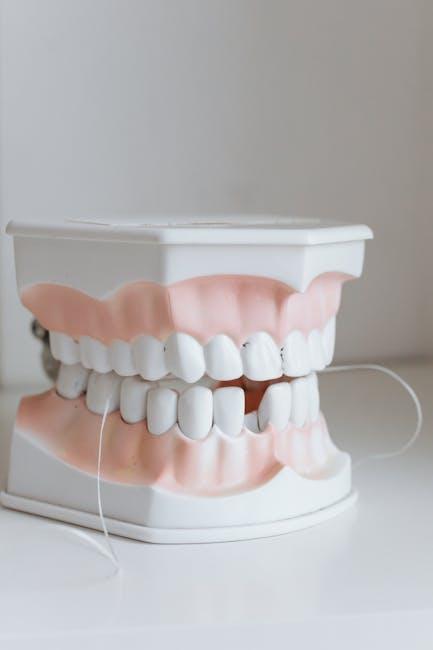
Fluoride Bans Could Worsen U.S. Dental Health Crisis, Study Warns
Fluoride has long been heralded as a key defender against tooth decay, thanks to its proven ability to strengthen enamel and reduce cavities. However, recent moves by some U.S. municipalities to ban water fluoridation threaten to unravel decades of progress in dental health. A new study, highlighted by CW33.com, raises urgent concerns that such bans could exacerbate America’s ongoing dental health crisis.
The Growing Dental Health Crisis in the U.S.
The United States faces a significant dental public health challenge, with millions suffering from untreated cavities, gum disease, and other oral health issues. According to the Centers for Disease Control and Prevention (CDC), tooth decay remains one of the most common chronic diseases in children and adults alike.
Despite technological and medical advances, disparities in access to affordable dental care continue to grow, particularly in low-income and rural communities. The removal of fluoride from community water supplies could further widen this gap.
Key Statistics on U.S. Dental Health
| Dental Issue | Prevalence in U.S. | Impact |
|---|---|---|
| Tooth Decay (Cavities) | ~91% of adults aged 20-64 | Pain, infection, tooth loss |
| Gum Disease | 47% of adults over 30 | Inflammation, tooth loss, systemic health risks |
| Childhood Cavities | 1 in 5 children aged 5-11 | School absences, developmental issues |
Why Fluoride Matters: Benefits Backed by Science
Fluoride is a naturally occurring mineral celebrated for its cavity-preventing properties. When introduced to community water systems (water fluoridation), fluoride strengthens tooth enamel and makes it more resistant to acid attacks from plaque bacteria and sugars.
Main Benefits of Fluoride Include:
- Reduces tooth decay by up to 25% in children and adults, according to the CDC.
- Cost-effective prevention: Every $1 invested in water fluoridation saves $38 in dental treatment costs.
- Safe and regulated: Fluoride levels in water are carefully monitored for optimal safety and effectiveness.
- Equitable health benefit: Provides cavity protection to all residents regardless of income or access to dental services.
The Impact of Fluoride Bans on Dental Health
Despite these benefits, several U.S. cities have recently voted to ban or reduce fluoride levels in water supplies, driven by concerns around safety, environmental impact, or misinformation. A recent survey highlighted by CW33.com shows a worrying correlation between these bans and rising rates of dental decay.
Potential Consequences of Fluoride Removal:
- Increased cavity rates: Communities without fluoridated water tend to experience higher levels of tooth decay, particularly among vulnerable groups.
- Greater healthcare costs: More cavities and dental diseases mean more expensive dental treatments and emergency visits.
- Widening health disparities: Those who cannot afford dental care lose vital protection leading to worsened oral health outcomes.
- Long-term systemic risks: Poor oral health can contribute to cardiovascular and diabetic complications.
Study Highlights (Summarized)
| Finding | Impact |
|---|---|
| Fluoride bans linked to 15-25% rise in pediatric cavities | Higher rates of toothaches and abscesses in children |
| Dental emergency visits increased by 12% | Greater strain on health systems and families |
| Low-income communities hardest hit | Exacerbation of existing oral health disparities |
Practical Tips to Protect Your Dental Health Amid Fluoride Debates
Whether or not your community’s water is fluoridated, there are steps everyone can take to maintain strong and healthy teeth.
Top Dental Care Tips:
- Maintain regular oral hygiene: Brush twice daily with fluoride toothpaste and floss daily.
- Visit your dentist regularly: Schedule check-ups and cleanings every six months.
- Limit sugary foods and drinks: Reduce the frequency and amount to prevent cavity formation.
- Use fluoride supplements: Consult your dentist for appropriate fluoride mouth rinses or varnishes if fluoridated water is unavailable.
- Stay informed: Understand local water policies and advocate for science-based public health decisions.
Case Study: Communities Thriving with Water Fluoridation
Take, for example, the city of Seattle, Washington, where water fluoridation has been in place for over 70 years. The city boasts one of the lowest rates of childhood cavities in the state. In contrast, nearby communities that halted fluoridation several years ago witnessed a significant increase in dental decay rates, particularly in children and low-income families.
“The difference in dental health before and after fluoridation bans is stark. It’s a public health setback that affects our most vulnerable residents.” – Dr. Angela Ramirez, Public Health Dentist
Conclusion: Why We Need to Keep Fluoride in Our Water
The evidence is clear: fluoridation is a safe, cost-effective, and equitable tool to combat America’s dental health crisis. Banning fluoride in public water supplies risks reversing years of progress, increasing cavities, healthcare expenses, and health disparities. While the decision to fluoridate water will always be a local one, it is critical that those choices are based on rigorous scientific research rather than fear or misinformation.
For individuals, prioritizing dental hygiene and visiting a trusted dentist are essential, regardless of fluoride status. For communities, protecting the benefits of water fluoridation remains a vital component in improving oral health outcomes nationwide.
Stay educated, stay proactive, and protect your smile – the science of fluoride still stands strong.


